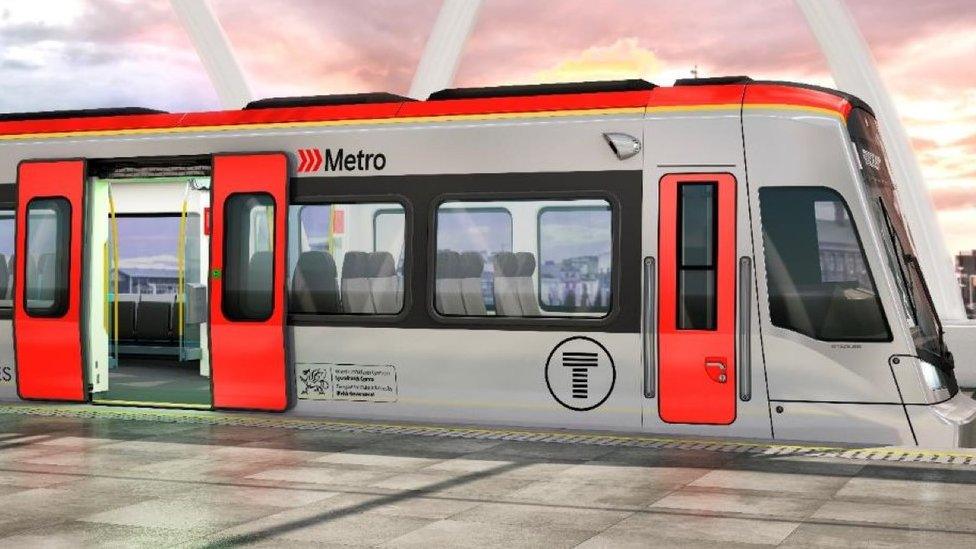South Wales Metro: What happens until it is up and running?
- Published
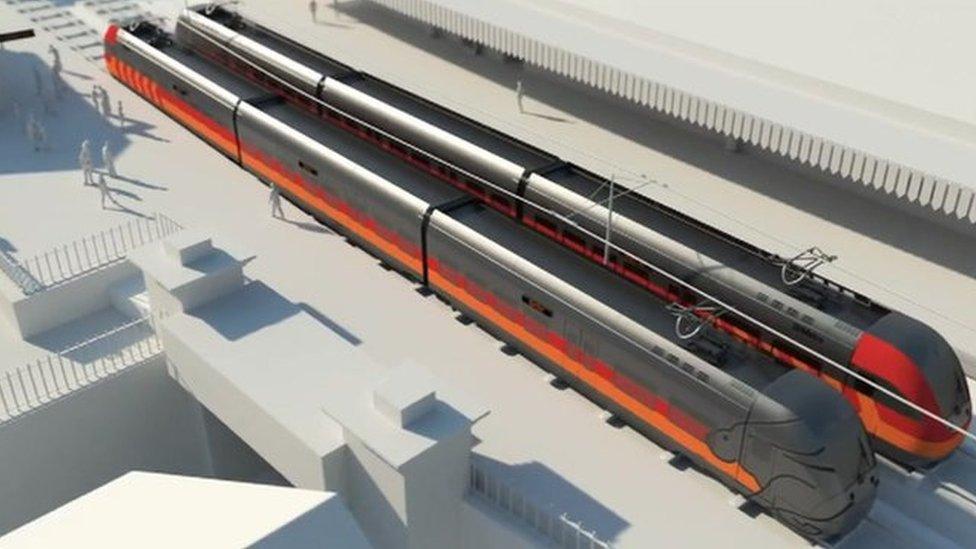
The South Wales Metro is planned to upgrade the rail network in south Wales by 2030 - but what will happen until then?
South Wales is at "a very dangerous point" where Cardiff's growth could be held back by poor transport links, a think tank has warned.
Thousands of workers are moving to developments such as Central Square.
But with the South Wales Metro still years away from becoming a reality, the Centre for Cities, external said other short-term transport solutions are needed.
It has called for a congestion charge in Cardiff, with money ploughed into better and cheaper bus services.
Transport for Wales (TfW) said there would be a "transformation" of train services from 2022-2023, but before then it is investing £40m in its current fleet.
"Cardiff is at a very dangerous point," said the think tank's Simon Jeffrey.
"Where its success attracts more and more people but congestion starts to clog up the network and the benefits start to be outweighed by the costs."
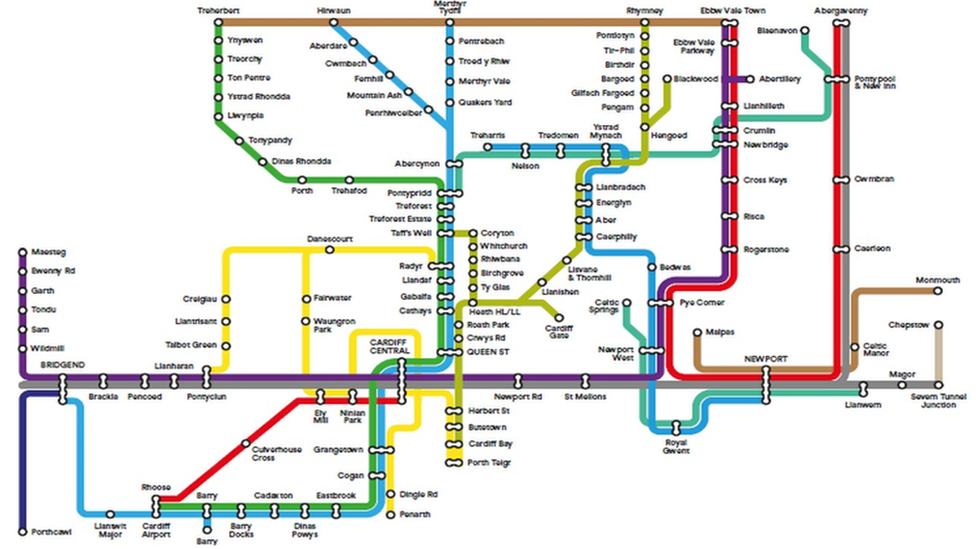
The Metro promises a faster, more integrated network of trains, buses and light rail services
How could buses help?
Mr Jeffrey described "real pressure" on train services as people head to the city on weekdays - which could result in investment being lost and people turning down jobs.
He believes a short-term solution can be found relatively quickly - using buses.
"Poor transport puts people in cars, which slows buses down, pushing their cost up, making them less reliable and people move away from using them," he added.
"The quickest way to deal with it while improving air quality and reducing the environmental impact is through a congestion charge.
"This (money) could be pumped into buses, creating £1 fares."
Mr Jeffrey also suggested a workplace parking levy where employers pay for each space they have.
Cardiff council will publish a paper on its 10-year transport vision next week - which could include a congestion charge to cut pollution in the city centre.
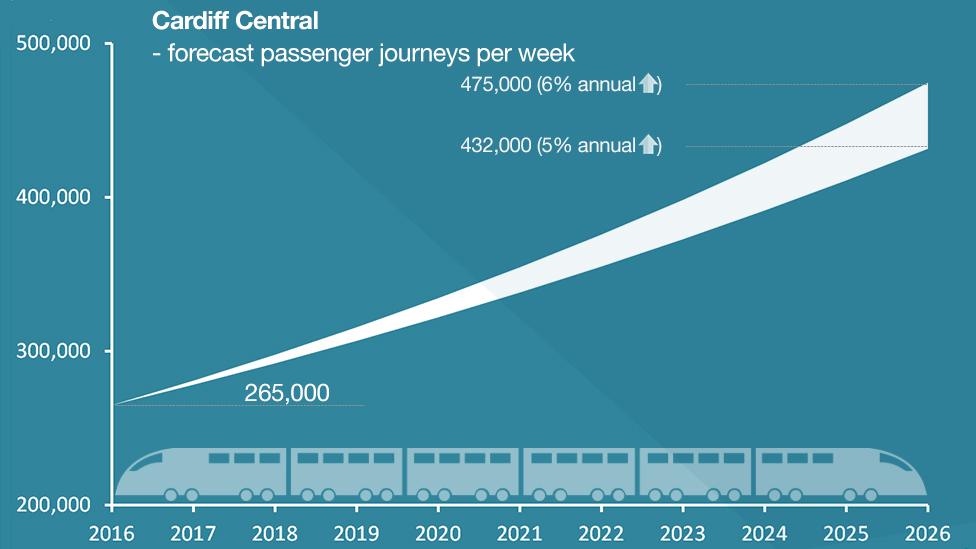
Network Rail said passenger numbers will continue rising by 5% to 6% annually over the next decade. But the pace of Cardiff's growth means it needs to keep updating its forecasts
What's happening with trains?
The Welsh Government's arms length body TfW took over the running of trains from the much-maligned Arriva Trains Wales in October 2018.
But it has been hit by the same complaints about cancelled services, packed trains and how the network operates.
Long-term Wales will have "the ideal situation" with new trains and efficient services - one other parts of the UK will be envious of, Mr Jeffrey believes.
However, he warned there could be short-term pain, adding: "It would be a tragedy if three or four years are lost between now and when the Metro is up and running."
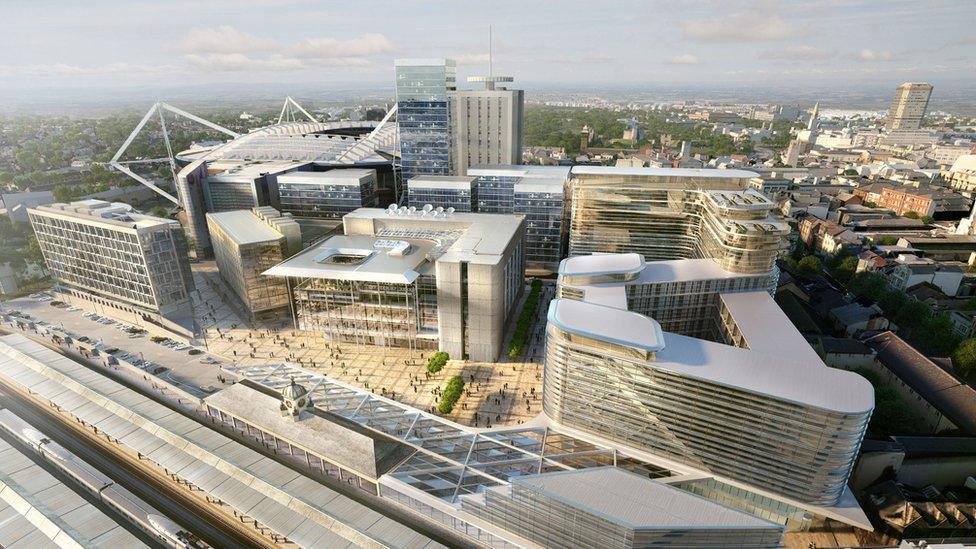
The new BBC Wales headquarters and a base for HMRC are some of the developments attracting more people to the city centre
When will we see real changes?
Professor Andrew Potter said an issue facing the whole of the UK, not just Wales, is that there have been delays of two years in replacement trains being delivered.
Their arrival should see the older Pacer trains disappear by July.
However, he does not envisage more significant changes until 2022, when trains being built specifically for the Metro start operating.
"When the new rail franchise started, much was made about how people's journeys would be changed," said the Cardiff University professor.
"And, while this wasn't going to happen immediately, now we are 12 months in, the expectation of change has started to rise yet the service does for many users remain similar to before."
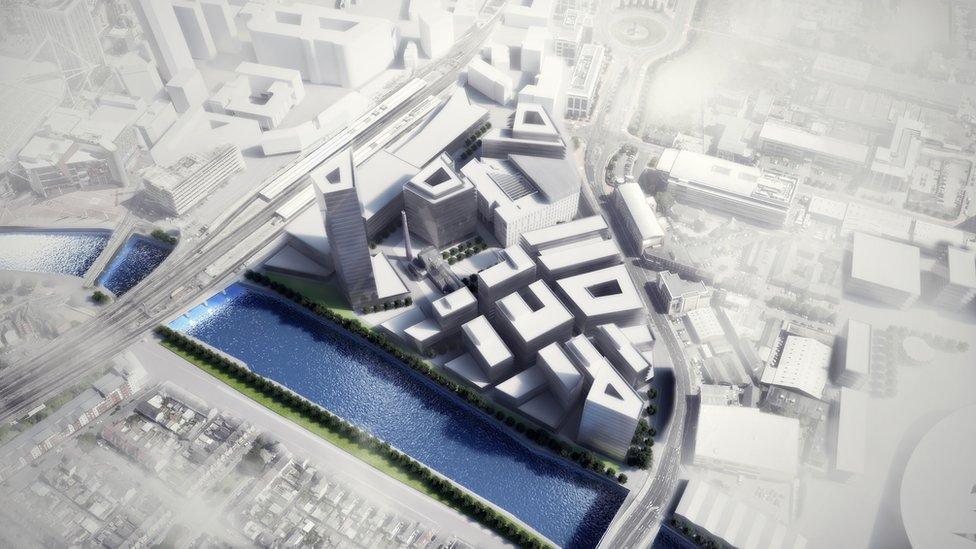
The Cardiff city centre redevelopment continues at pace with the former Brains Brewery site set to be turned into Central Quay
What does the train operator say?
A TfW spokesman said three quarters of a billion pounds would be pumped into the Valley Lines as part of the South Wales Metro scheme.
"Customers can expect to see a transformation of services from 2022-23 after the arrival of our new rolling stock, which will allow us to provide faster, greener, more frequent services, and 65% more capacity across our entire network," he said.
"In the mean time, we're currently introducing more modern trains in south Wales, providing space for 6,500 extra customers every week on our busiest services."
More trains will arrive later this year, putting the oldest out of service and increasing capacity further.
The Welsh Government said it was working with TfW.
"Metro reforms will see improved rail as part of an integrated public transport network, and we want it to be easier for people in Wales to use all forms of public transport," it said.
"We will be bringing forward legislation to improve bus services as part of wider bus reform.
"It will include provisions such as franchising, and improvements to public information."
More than £40m in grants for active travel - such as walking and cycling - will also be given to local authorities.
- Published8 January 2020

- Published14 December 2019
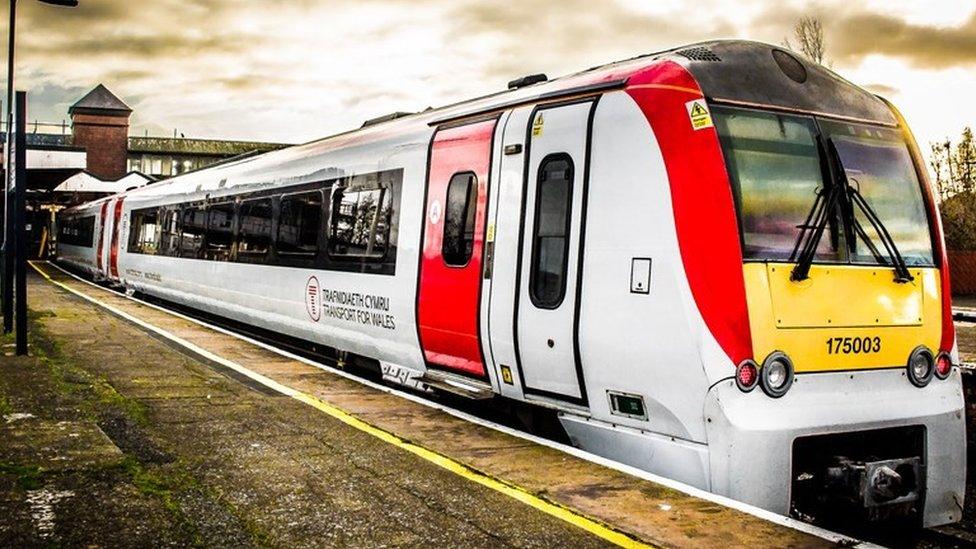
- Published27 December 2016
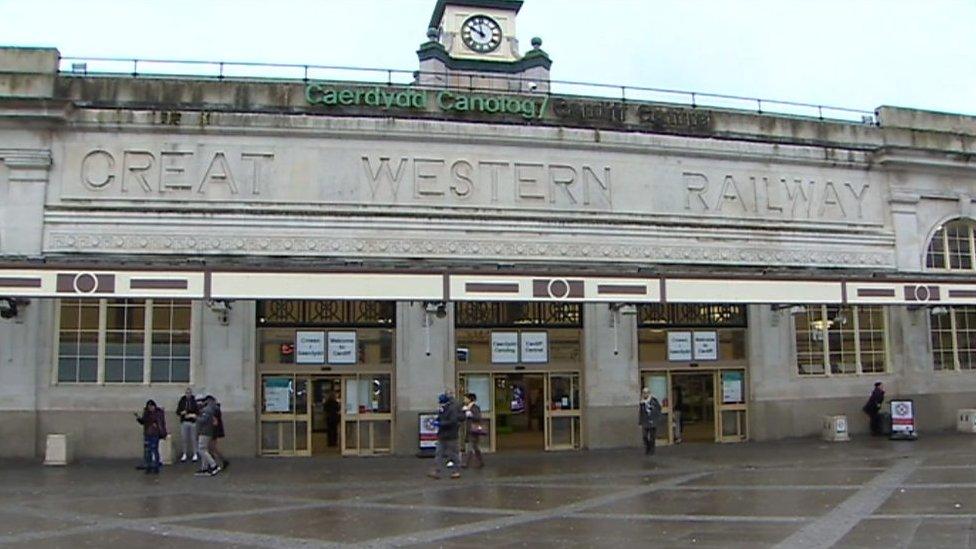
- Published7 January 2020
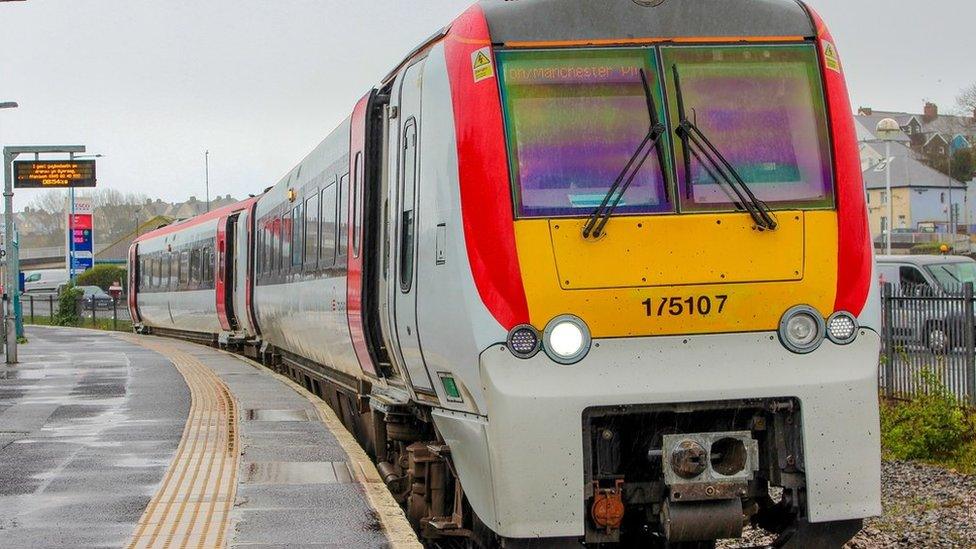
- Published19 September 2019
